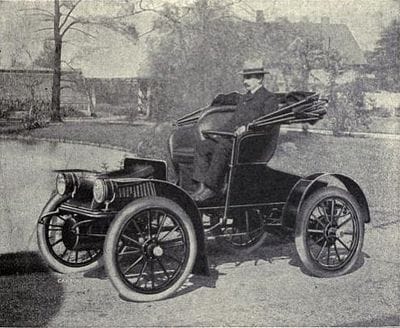"Daddy, Get Me a Baker!" – How History Keeps Repeating Itself on Four Wheels

In 1897, long before Elon Musk sent Teslas hurtling down highways and headlines, electric cars were already quietly gliding through the streets of New York. One of the most popular among them? The Baker Electric—a battery-powered vehicle so refined and futuristic that it graced high society and delighted children enough to inspire the phrase, "Daddy, get me a Baker!"
But as this forgotten chapter of history shows, being first isn’t always enough.
The EV That Almost Was
Over a century ago, America did go electric—at least for a while. In cities like New York and Chicago, electric taxis, delivery trucks, and even personal vehicles were a common sight. They were smooth, quiet, and clean, requiring none of the cranking or belching of early gasoline cars.
Yet within a couple of decades, these innovations had all but disappeared.
What happened? The same things we see today: image, infrastructure, and industry interests.
Masculinity, Machines, and Missed Moments
Back then, electric vehicles developed an image problem. Gas-powered cars were noisy, rugged, and associated with freedom, adventure, and masculinity. They roared down dirt roads, carried soldiers, and symbolized industrial power.
Electric cars? They were marketed to women and the wealthy elite. Quiet, low-maintenance, and delicate. Efficient, yes—but not macho.
Meanwhile, infrastructure for EVs lagged behind. Charging was slow, limited, and often only available in cities. Building a national charging network was possible—but oil offered a much bigger business model, not just for fueling cars, but for powering a wide range of post-industrial America: plastics, defense, chemicals, agriculture, and more.
Oil didn’t just win—it became the foundation of an entire economic era.
Sound Familiar?
Fast forward to today, and the same dynamics echo in eerily similar patterns.
Once again, we see electric vehicles caught between bold innovation and political pushback. Once again, infrastructure lags behind. Once again, cultural narratives shape which vehicles are desirable, and which are dismissed. And once again, a massive legacy industry has everything to lose if the transition succeeds.
And yet, EVs are surging—because unlike in the 1900s, we now understand that the stakes are not just technological or economic, but existential.
Timing Is Everything (Just Ask a Start-Up)
This is what makes the Baker Electric’s story feel like a tech-startup tragedy. The product was good—even great. The market showed early signs of traction. But the timing wasn’t right. Infrastructure, policy, and public sentiment weren’t ready. Just like a start-up that launched too soon, it couldn’t scale fast enough to survive.
Today’s EV movement is more than a comeback—it's a chance to correct that timing mismatch. To align the right product with the right support, cultural momentum, and urgency.
Closing the Loop
As you drive past a charging station or scroll past EV memes, remember: we’ve been here before. History doesn’t repeat itself exactly, but it does rhyme—and right now, the same battles are being fought with new players and higher stakes.
Let’s hope that this time around, the best idea doesn’t fail just because it arrived early.
And maybe, just maybe, some kid in 2035 will shout again: "Daddy, get me a Baker!"
